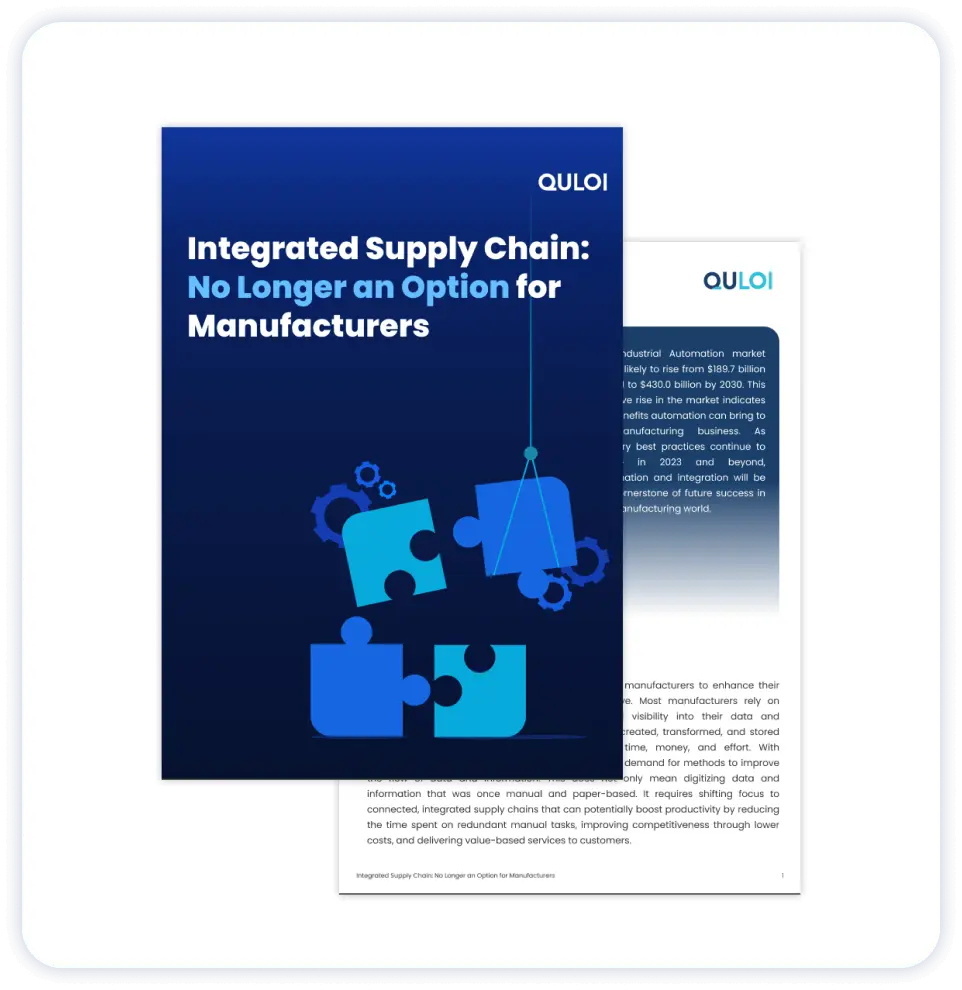WHITE PAPER
Integrated Supply Chain: No Longer Optional for Manufacturers
Integrated approach allows manufacturers to automate mundane tasks and combat project completion delays, exceeded budgets, and unmet consumer demands.

Download now and unlock the potential of an optimized supply chain
Around the world, manufacturers are groaning under the weight of poor data, limited visibility, quality issues, stock shortages, fulfilment delays, etc., that may limit the industry’s growth momentum. The continued and overwhelming reliance on traditional manufacturing practices impedes operational efficiency. Worse, when procurement professionals do not have a single source of truth to rely on, poor data from disparate systems inhibits business continuity. The question is how manufacturers can build enduring value with fragmented supply chains.
Why rely on fragmented systems when supply chain integration helps?